‘Tiger Town’: The Story of the Long-Lost Disney Channel Original Movie
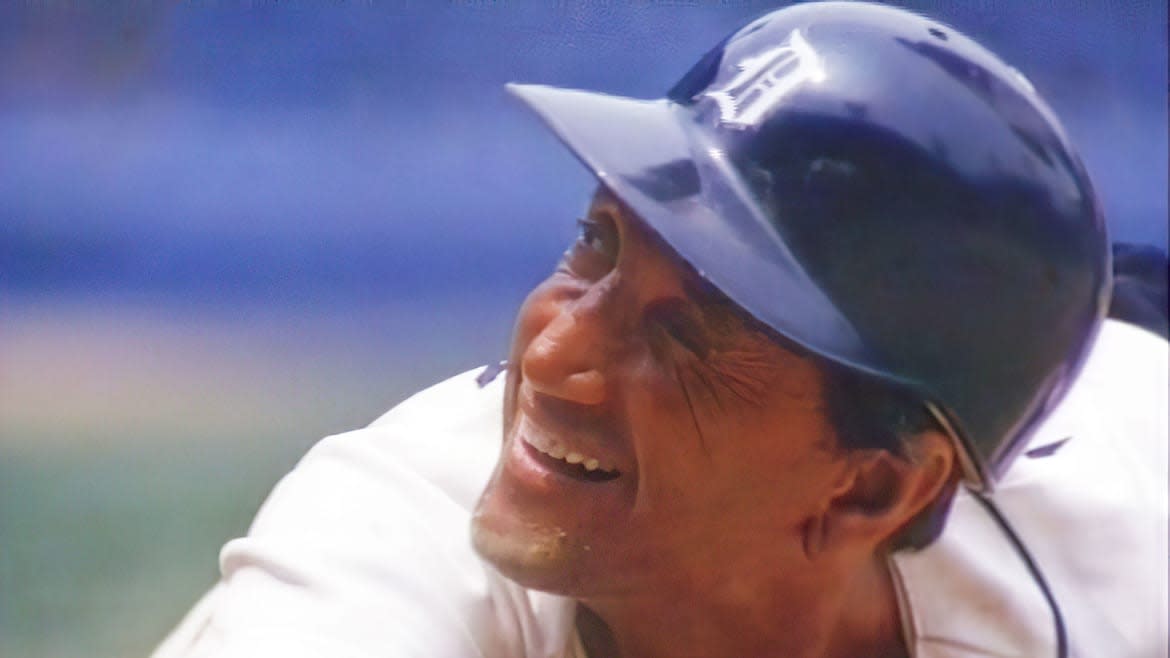
In October 1983, the Disney Channel—which had launched just six months earlier—was already at the forefront of original cable series. But, says Jim Jimirro, founding president of the Disney Channel, “The last thing I was looking to do at that time was get into a feature film business.”
Jimirro tells me, “We were just getting our feet wet with the original productions,” 13 of which were part of the channel’s April ‘83 launch.
However, a young filmmaker and his production partner seized an opportunity to tell a worthwhile story—opening the door for the network to create a world of movies called “Disney Channel Premiere Films,” which predated the now-beloved “Disney Channel Original Movies.”
Known today as DCOMs, these films have become a huge part of Disney Channel’s brand. So it’s weird that we aren’t talking more about Disney Channel’s very first original film: Tiger Town, which aired Oct. 9, 1983. It’s a charming, sensitive film with a legacy not only of being “first,” but of being excellent. Tiger Town has been overshadowed for many years by Disney Channel’s plethora of more commercial fare, which often reaches younger demographics rather than the general family audiences the Disney Channel previously served. But Tiger Town deserves a re-appreciation, nearly 40 years since its premiere.
In its inaugural year, the Disney Channel presented a heartfelt feature about baseball, grief, and believing in what you want to achieve. Tiger Town had a strong presence on the cable channel from 1983 to 1985, re-airing in line with the baseball season that third year; it even won the CableACE Award for Best Dramatic Feature Film. In sporadic ’90s airings on the channel, the film was sometimes grouped with other baseball movies, like Moochie of the Little League, Pastime, and Tiger Town’s spiritual successor, Disney’s Angels in the Outfield. But Tiger Town isn’t legally available for streaming today—not even on Disney+, almost four years after the platform’s launch.
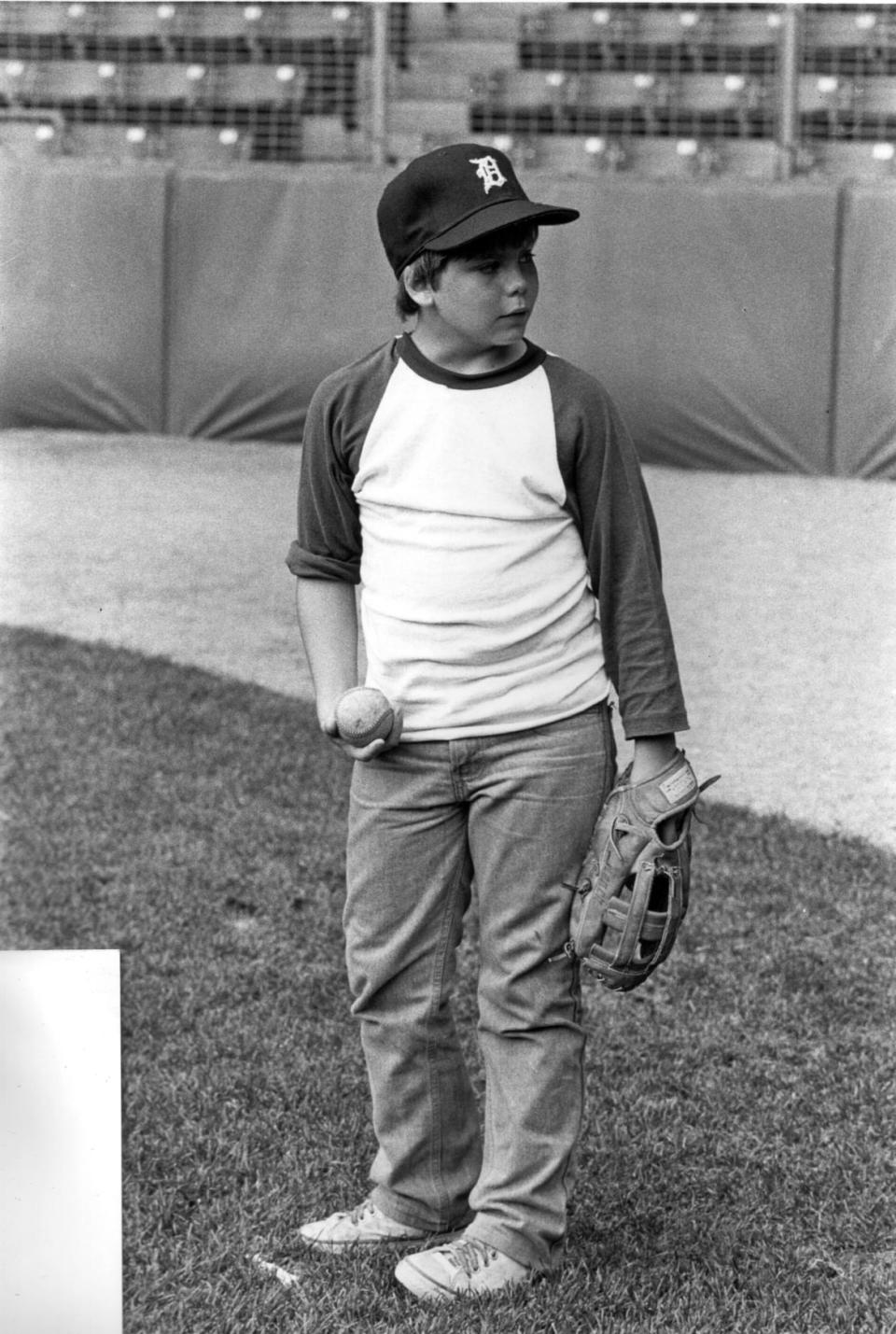
With Tiger Town, then-25-year-old Alan Shapiro “wanted to write a story about a little kid in baseball because it was such a big part of my life,” he says, in an interview. “As a kid, it was like a religious experience, almost, when my dad would take me to those games [at Tiger Stadium],” he adds.
In the movie, a boy named Alex (Justin Henry) eats, sleeps, and breathes Detroit baseball. His bedroom is outfitted with Tigers pennants and posters. He and his father, Buddy (Ron McLarty), bond by attending games together. “Play ball!” his mother (Bethany Carpenter) exclaims one morning before school, waking Alex up with a recording of the national anthem.
Buddy is ill, and before his condition worsens, he and Alex stop by an Italian restaurant for a spontaneous spaghetti dinner, smiling and laughing as they enjoy this rare treat. “Alex, don’t ever forget what I told you,” Buddy tells his son later on, while lying in bed. “If you believe in something in all your heart, you can make it happen. Don’t ever stop believing, Alex. Ever. It’s all a person’s got.” These parting words change everything for Alex, who learns in the next scene that his father has passed away.
Alex starts going to Tigers games alone, dealing with relentless school bullies on his way. He concentrates as hard as he can on believing that Billy Young (Roy Scheider), “the oldest Tiger of them all,” can lead the team to victory; real-life Detroit Tigers player Al Kaline somewhat inspired Scheider’s character. If superstition is to be trusted, Alex wills Billy to knock it out of the park. After the player’s career-defining game, where Billy finally wins the pennant, Alex has a moment of solitude in Tiger Stadium, to the tune of Eddy Manson’s moving score, then silence.
It seems that the film was a good luck charm to the real Tigers, who won the World Series in 1984. Shapiro says that Tiger Town was “kind of a valentine for Detroit,” his hometown. Mary Wilson from The Supremes sang the national anthem, and the film included real announcers Ray Lane and Ernie Harwell, as well as sportscaster Al Ackerman and Tigers manager Sparky Anderson. Shapiro even filmed the school scenes at the elementary school he attended.
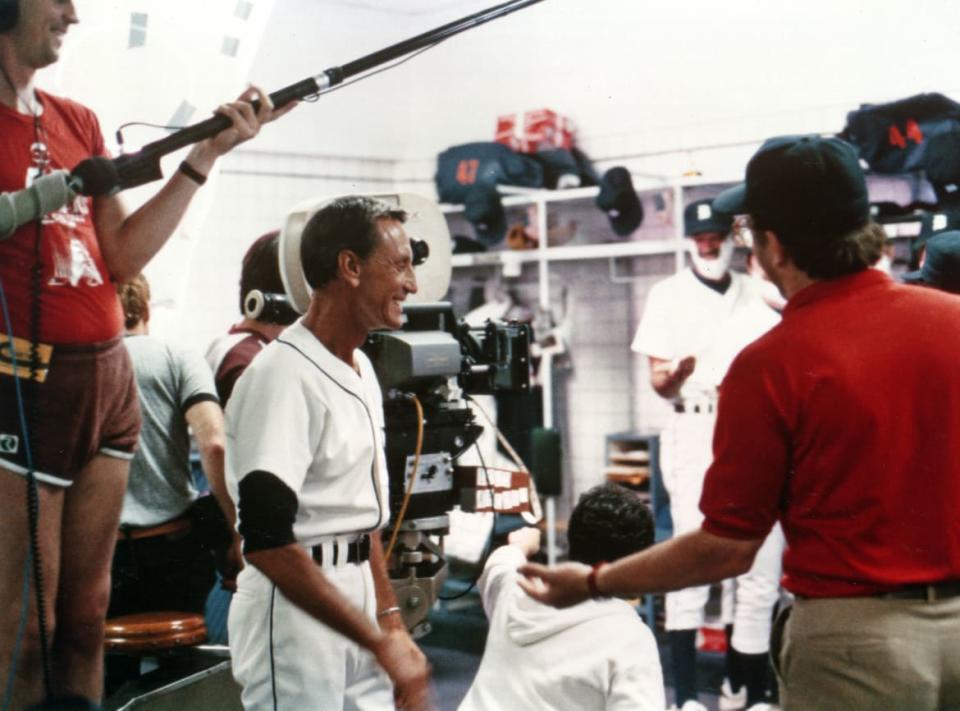
The local connections are interesting for me, since I currently live in the metro Detroit area, but there’s so much more behind my passion for the film and its era that makes it worthwhile for anyone. I love Tiger Town because it astutely holds the reality of grief and the hope of believing in something.
The scene where Alex is crying, standing before his father’s casket, is even more poignant for me now, as I’ve recently lost a friend I love very much. Tiger Town is an encapsulation of life’s delicate nature, with persistent hope, artfully displayed. It’s a foundational film that deserves must-see status for Disney Channel fans—without it, who knows where the channel would have gone, and what our current nostalgic obsessions would be? Would the DCOM even exist?
The 1980s were enchanting years for the Disney Channel. I say this not as a person who lived through them, but as a ’90s kid who can’t resist a chance to peek at what I missed. The Disney Channel began as a premium cable network with 16 hours of daily programming. A satellite version of Mickey Mouse would greet viewers in the morning to start the day and return in the evening to sign off. Early subscribers saw shows like Welcome to Pooh Corner, Mousercise, EPCOT Magazine, Five Mile Creek, and You and Me, Kid. As the decade went on, D-TV (a series of Disney animations synced up with popular music), Kids Incorporated, The All New Mickey Mouse Club, Disney Family Album, and Good Morning, Miss Bliss (a.k.a. Saved by the Bell: The Junior High Years) were all introduced.
More Disney Channel Premiere Films were also on the horizon. Shapiro teamed up with writer Mark Rosman (who later directed episodes of Lizzie McGuire and Even Stevens) and Tiger Town producer, the late Susan B. Landau, for The Blue Yonder in 1985, and Stu Krieger, who later wrote classic DCOMs like Zenon: Girl of the 21st Century and Smart House, wrote The Parent Trap II (1986), starring Hayley Mills.
The phrase “Disney Channel Premiere Film” was phased out in the mid-’90s, but the concept of original films only became more essential to the network’s brand. For millennials, tween-centric DCOMs—as they became known—carry an importance that’s hard to put into words. I was only 7 when Hilary Duff and Christy Carlson Romano starred in Cadet Kelly, 9 when The Cheetah Girls said to “throw your hands up if you know that you’re a star,” and 11 when High School Musical debuted and set a mega franchise in motion. I still love my tradition of watching Halloweentown and its sequels every fall. These movies stay with me, but I also enjoy more recent DCOMs; 2021’s Spin and Christmas…Again?! are highlights.
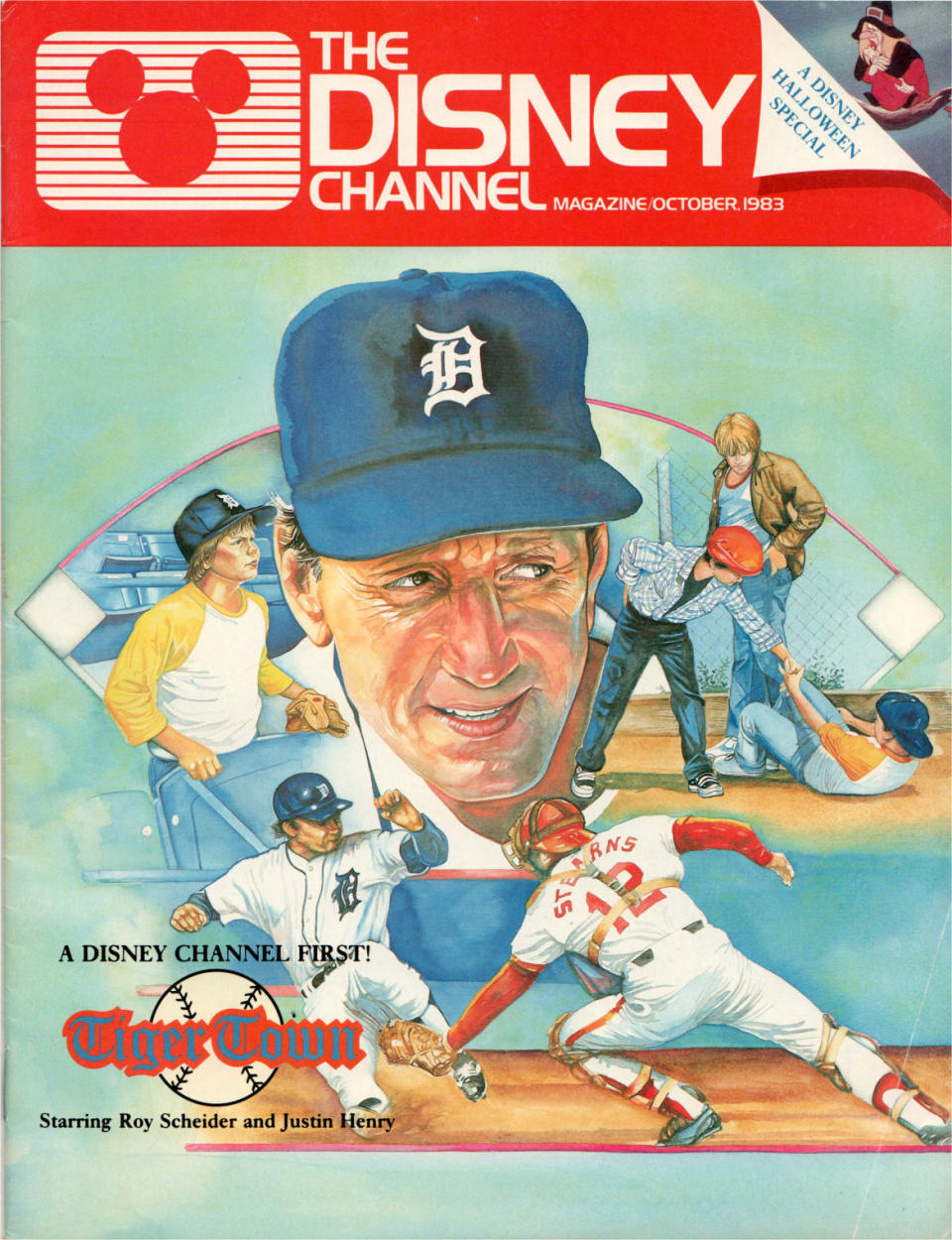
Forty years after its premiere, Tiger Town deserves a celebration too, just like all the great DCOMs that came after it. However, when Disney Channel marked its milestone launch anniversary in April, it primarily focused on programming from the 2000s to today. There were notable exceptions. A short made in the style of Disney’s animated Chibi Tiny Tales paid homage to Smart House with a miniature PAT (Katey Sagal), and to Halloweentown with an adorable Aggie Cromwell (Debbie Reynolds). More ’90s DCOMs were included in social media compilations, like “Stars you forgot were on Disney Channel,” but Tiger Town and its ‘80s contemporaries were nowhere to be found.
As a result of not watching it in movie marathons growing up, and not being able to stream it today, I’m sure plenty of Disney Channel fans and stars alike haven’t seen Tiger Town, let alone heard of it. I wonder if Sabrina Carpenter, who starred in the Disney Channel series Girl Meets World, had ever come across it when she took part in a trivia quiz to promote her Adventures in Babysitting remake, the 100th DCOM, in 2016.
There’s a lot to love about the programming that Disney Channel has chosen to highlight in its anniversary celebration, but there’s so much more to the Disney Channel story. “There's been a lot of really terrific obscure things that people have done with them. … I wish they would acknowledge it more,” Shapiro says. He adds that he was previously in communication with Disney+ about placing Tiger Town with the streamer. However, according to Shapiro, there have been rights issues regarding the use of the song “Go Get ‘Em Tigers.”
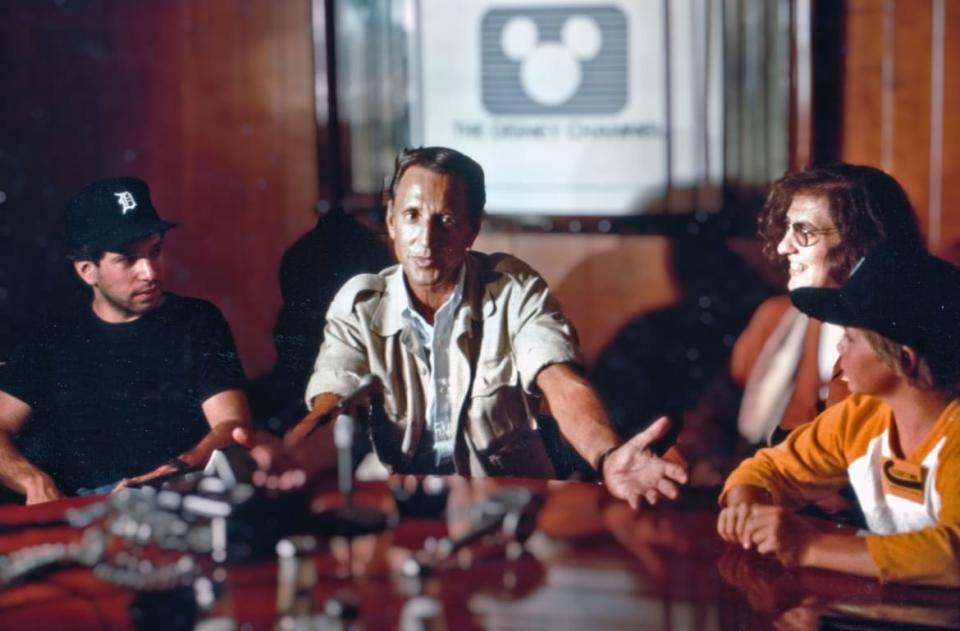
I would love to see Disney Channel continue on its path toward progress in programming— telling stories that are representative of more viewers’ experiences, as recent shows like Raven’s Home, Andi Mack, and Sydney to the Max have done—while preserving the history that built this network. If you asked me whether every single Premiere Film should be on Disney+, I would consider leaving a few historical fiction works off the list for content reasons. But Tiger Town deserves accessibility and distribution today.
Jim Jimirro recognizes the merits of this movie, calling Tiger Town an “extremely uplifting film at the end of the day with a lot of heartbreak in the middle of it.” He notes that movies don’t always need to “make a statement,” that there’s value in having “a nice story, a dramatic story in which to get lost. And that's what Tiger Town is.”
It’s a movie to cry with, for anyone going through the loss of a loved one. It’s a movie to cheer with, for anyone looking for a triumph. Tiger Town is a work of art—“75 minutes of unpretentious, lovingly rendered magic,” as a review in The Hollywood Reporter reads. As our TV and streaming landscape evolves, we shouldn’t wash away a pivotal moment in the history of Disney Channel and cable television. Maybe we’ll someday be able to make a double feature out of Tiger Town and Eddie’s Million Dollar Cook-Off, two great Disney Channel baseball films, two decades apart. Both remind us not to limit our dreams, even in the face of adversity.
Keep obsessing! Sign up for the Daily Beast’s Obsessed newsletter and follow us on Facebook, Twitter, Instagram and TikTok.
Get the Daily Beast's biggest scoops and scandals delivered right to your inbox. Sign up now.
Stay informed and gain unlimited access to the Daily Beast's unmatched reporting. Subscribe now.


